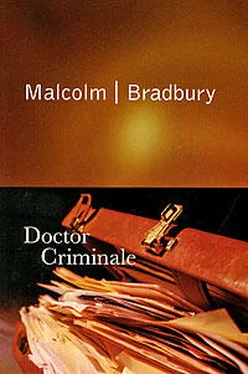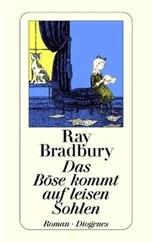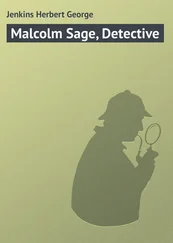Malcolm Bradbury - Doctor Criminale
Здесь есть возможность читать онлайн «Malcolm Bradbury - Doctor Criminale» весь текст электронной книги совершенно бесплатно (целиком полную версию без сокращений). В некоторых случаях можно слушать аудио, скачать через торрент в формате fb2 и присутствует краткое содержание. Город: London, Год выпуска: 2000, ISBN: 2000, Издательство: Picador, Жанр: Современная проза, на английском языке. Описание произведения, (предисловие) а так же отзывы посетителей доступны на портале библиотеки ЛибКат.
- Название:Doctor Criminale
- Автор:
- Издательство:Picador
- Жанр:
- Год:2000
- Город:London
- ISBN:978-0330390347
- Рейтинг книги:5 / 5. Голосов: 1
-
Избранное:Добавить в избранное
- Отзывы:
-
Ваша оценка:
- 100
- 1
- 2
- 3
- 4
- 5
Doctor Criminale: краткое содержание, описание и аннотация
Предлагаем к чтению аннотацию, описание, краткое содержание или предисловие (зависит от того, что написал сам автор книги «Doctor Criminale»). Если вы не нашли необходимую информацию о книге — напишите в комментариях, мы постараемся отыскать её.
Doctor Criminale — читать онлайн бесплатно полную книгу (весь текст) целиком
Ниже представлен текст книги, разбитый по страницам. Система сохранения места последней прочитанной страницы, позволяет с удобством читать онлайн бесплатно книгу «Doctor Criminale», без необходимости каждый раз заново искать на чём Вы остановились. Поставьте закладку, и сможете в любой момент перейти на страницу, на которой закончили чтение.
Интервал:
Закладка:
Why not? Conferences go on and on; one interesting new thought, one interesting new face, at once gives way to another. I thought no more about Markova, and Ildiko I never saw at all. Her conference papers remained uncollected, still lying in the pigeonhole when we all left Norwich for the so-called ordinary world. So, I didn’t see her then, and I haven’t seen her since – not to this day, this very day. I can’t imagine quite what happened. Maybe something detained her in London; there was sharp high-street recession in Britain that summer, and all the stores were filled with cut-price bargains. Maybe at the last minute she remembered how little she liked conference lectures, and decided to stay in Budapest. Or maybe something else came up; perhaps she met someone, over a lunch for instance, and some other foreign journey called. I sat down to reply to her letter, and find out what had gone wrong, but when I looked at it I saw there was no address.
This made me wonder why she had sent it at all, and I read right through it again, hunting for clues. I picked up the press cuttings and shuffled through those. There was one vague hint of something, though I’m not at all sure what it meant, or means. Beside some complex and unreadable Hungarian text, a photograph caught my eye. It was a bright summer shot of Bazlo Criminale, taken perhaps five years before; at least the hair was darker and more luxuriant, the expensive suit cut differently from today, the tie wider. He had just stepped out of a yellow cab, in what must have been New York, in fact somewhere in SoHo or Greenwich Village, because the storefronts behind him were mostly art galleries. Photographs are random, and much harder to read than books. But the main point of this, if it had one, was that he was carrying a large framed photograph, one of his own erotic nudes. The unclothed model was, I recognized from detailed experience, Ildiko. The same model, but very expensively clothed, also hung on Criminale’s arm, smiling warmly at the camera. Criminale simply stared expansively, just as he had at Schlossburg.
Yes, photographs are hard to read. But the two looked happy, definitely happy, together (‘Aren’t they happy, I remember this before,’ I recalled from Lausanne, ‘When he left Gertla for Sepulchra’). Was this why Ildiko had sent it, to show me she had cared for Criminale much more than I might think? Or was the reason rather more Hungarian? Was she telling me that people who have once been happy together – as the two of us had – later do strange things to each other, maybe betray each other? Then something odd struck me; in Budapest, I remembered, Ildiko had made a lot of the fact that she had never been in the West, and that I was taking her there on her very first journey. But this New York photograph clearly dated from well before our trip. It all seemed very meaningful but very baffling, like quite a lot else in the story of Criminale. Maybe the point was somewhere else, not in the letter, not in the photographs, but in the simple fact that she had written it at all. For what the letter had done was to send me off to Norwich, make me lecture, and so start telling the story of Bazlo Criminale. And if that was what she wanted, well, it worked, and has kept on working – as you can now see very well.
That brings me more or less to this day, this very day – or rather to the day I sat down to start recording this Criminale story, not, of course, this day now when, with the world still changing, I finish it, certainly not the day when you choose, in your own good time, to read or deconstruct it. A few late if not last things are probably worth saying. Re Criminale: his lost suitcase never was recovered, I believe, which means that every trace has been lost of the novel that should have followed Homeless . The series about the Great Thinkers of the Age of Glasnost was never made, and I suppose never will be. Eldorado TV failed to pass the so-called ‘quality threshold’ and lost its broadcasting franchise to the Australians in October 1991. Nada Productions returned to the nothingness from which, I imagine from its name, it must have been born, having mislaid quite a lot of several people’s money over the course of the Criminale project. On the other hand the Vienna Staatsoper is flourishing, especially after Lavinia’s visit to the city. Lavinia in fact did quite well, getting a job in Munich with the European Television Union. Ros, I see from my TV screen, is working regularly for the ‘Late Show’. In fact I saw her name roll on the credits for the 1991 Booker, which this time I watched in the comfortless comfort of my own homeless home.
In the matter of Euro-fraudulence, as on other things, Cosima Bruckner proved completely correct. On the high, beflagged thirteenth floor of the Berlaymont Building, it was officially agreed that – with 1992 at stake, a difficult summit coming at Maastricht, currency union and a new era beginning, the Eastern European dimension coming to the boil, and so on – certain small financial problems of the past were much better forgotten. Otto Codicil’s name was briefly touched with scandal, but it did him no harm at all, or maybe some good, in Vienna, where he still teaches, or does not teach, his students. His book, Empirical Philosophy and the English Country House , appeared this year and caused a small stir in Oxbridge mental circles. It was also held responsible for a significant upsurge in British tourism; apparently people really like to see where other people think. I gather that Gerstenbacker, his great work, which will never be known as his, finished, has been looking for a post in some European university where he can find some obliging assistants who will do for him what he has so selflessly done for others. Professor Massimo Monza’s famous, flamboyant column still flourishes in La Stampa , where his late-Marxist readings of such things as the films of David Lynch or the rise of the miniskirt attract great attention. Gertla Riviero’s work has an ever-rising reputation in Argentina, both as avant-garde discovery and a sound hedge against inflation.
Cosima Bruckner’s talents were not entirely neglected at the Euro-centre of things. In the city of setaside, her fraud investigations were indeed set aside, but it proved an important step towards Euro-promotion. As she says herself, fraud is simply a sideshow in the European bureaucratic programme, and she has risen to far greater heights. Working from the cabinet of the Deputy-President (Jean-Luc Villeneuve), she has become responsible for many matters to do with the successful implementation of the year 1992: the year of elections everywhere, of world upheavals, of the Barcelona Olympics, of Expo 92 and the Seville celebrations of the great discoveries of Columbus, who found a New World order just 500 years ago. No wonder, as Spain booms, and Portugal takes over the presidency of the European Community, Iberia has become the centre of current attention. The Heads of State are meeting in Lisbon soon, and don’t worry, I shall be there.
This brings me to a matter I am not too keen to discuss, for obvious reasons: my improving relations with Cosima Bruckner. I’m on a Euro-beat these days, and I actually visit her quite frequently. She has rented a fine (if under-furnished) apartment in Lisbon, up in the old town, under the castle of São Jorge and with a fine view of the River Tagus and Pombal’s glorious neo-classical city. About Cosima I now see I made a good many mistakes – but then I did about a large number of things. For instance, in my own contemporary opinion, there is nothing wrong with black leather trousers, or her sternly shy ways. As for Cosima’s conspiratorial vision of life, which I once found excessive, I now have another view; we have conspiracy theories because people conspire, just as we have plots because people plot, and fictions because people are always inventing things, if only to put life in some imaginary yet necessary order. So I’ve now come to agree with her that our two worlds, mine of books and late-modern thinkers, hers of power and fraud, are not so far apart after all. In the obscure, unstable world of the Age of Glasnost, unlikely things interconnect, interface and intercourse far more often than I imagined. I can even see it in myself.
Читать дальшеИнтервал:
Закладка:
Похожие книги на «Doctor Criminale»
Представляем Вашему вниманию похожие книги на «Doctor Criminale» списком для выбора. Мы отобрали схожую по названию и смыслу литературу в надежде предоставить читателям больше вариантов отыскать новые, интересные, ещё непрочитанные произведения.
Обсуждение, отзывы о книге «Doctor Criminale» и просто собственные мнения читателей. Оставьте ваши комментарии, напишите, что Вы думаете о произведении, его смысле или главных героях. Укажите что конкретно понравилось, а что нет, и почему Вы так считаете.











